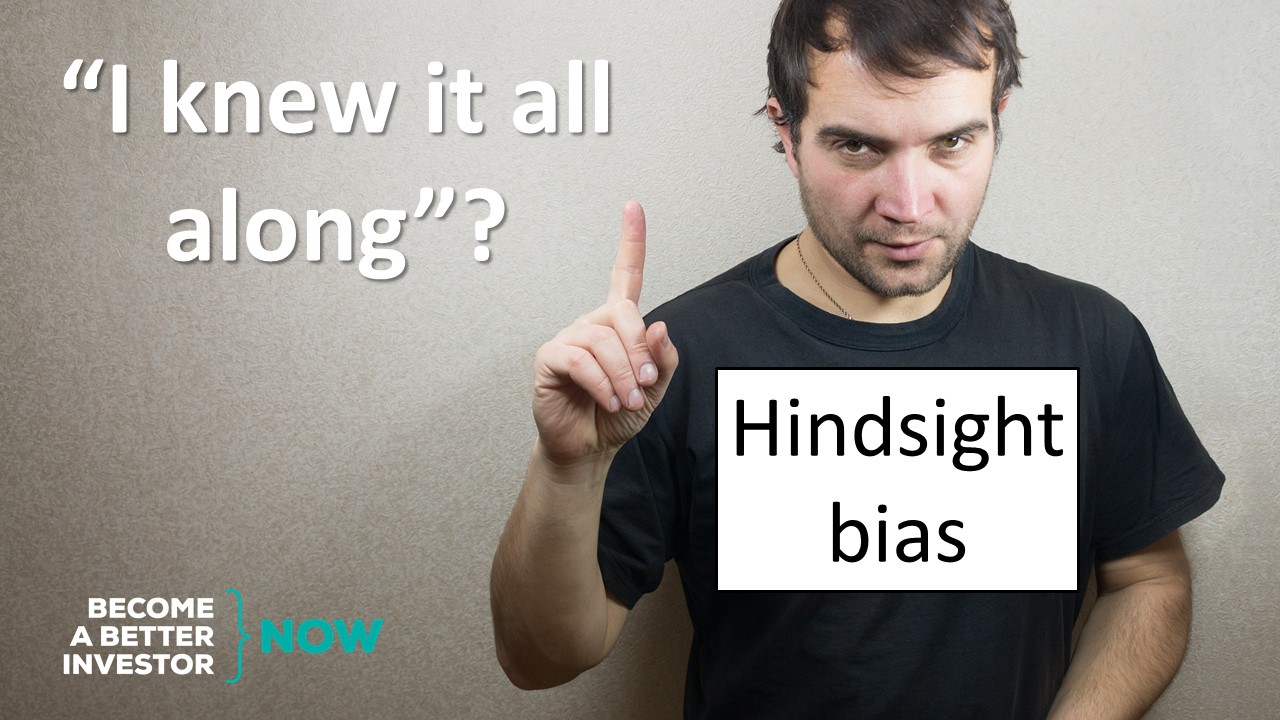You Probably Didn’t Know It All Along | Hindsight Bias
How to recognize hindsight bias
Have you ever met someone who stated, “I knew it all along”? Maybe someone who claimed to have known the crash was coming when the financial crisis in 2008 hit its worst. (I’m not saying no one knew it was going to happen, but your friends Average Joe and Typical Jill were most likely not among them. Why else would they have sat on huge mortgages and lost a large chunk of their retirement money in the stock market crash? I rest my case.)
What is hindsight bias?
Hindsight bias aka “I knew it all along” syndrome is the tendency to wrongly remember that you foresaw a past event was coming before it occurred. As the saying goes, “Hindsight is 20/20.” It’s easy to be knowledgeable about something after the fact. (Economists are often good at explaining events after they’ve occurred, making them seem predictable. 😉)
Why is hindsight bias a problem?
Well, it leads you to believe the world is more predictable than it really is, which can result in overconfidence. By believing that the stock market is more calculable than it is you might take very concentrated and leveraged bets, essentially, taking on a lot more risk than you can actually bear when the shit hits the fan.
How to deal with hindsight bias
Be skeptical of anyone who claims, after an event, that they had predicted said event. If Average Joe tells you that he foresaw the global financial crisis in 2008, ask him, “So, did you short subprime mortgages and Lehman Brothers then?”
When backtesting, consider what data was known and when, because as the word implies, you are using historic data. To avoid hindsight bias you need to consider when information was actually shared in real time to the public.
A good example is annual results. Assuming a company’s fiscal year is the same as the calendar year—i.e. books close on December 31st each year—it’s easy to believe this information is released at the same time. But in fact, it takes a few months to go public so everyone can access the data (depending on the country’s regulations)—it certainly wouldn’t be on December 31st.
Read more books of the Behavioral Bias Bible
DISCLAIMER: This content is for information purposes only. It is not intended to be investment advice. Readers should not consider statements made by the author(s) as formal recommendations and should consult their financial advisor before making any investment decisions. While the information provided is believed to be accurate, it may include errors or inaccuracies. The author(s) cannot be held liable for any actions taken as a result of reading this article.

